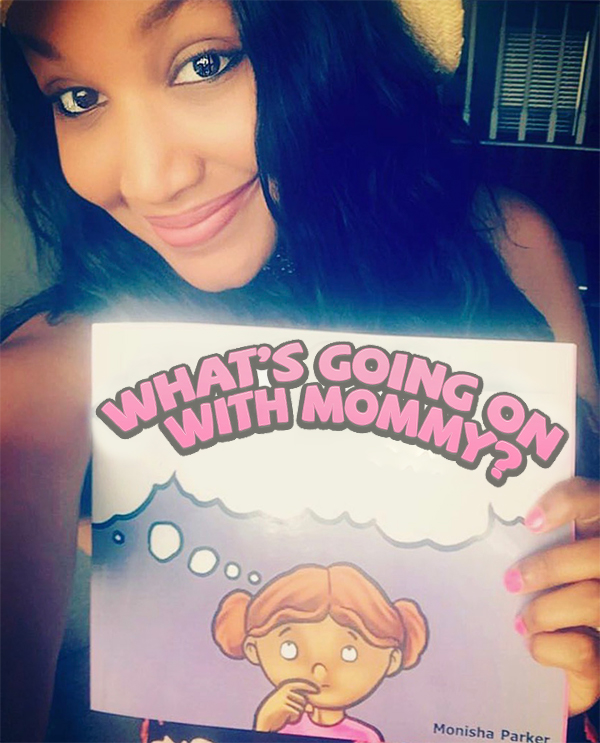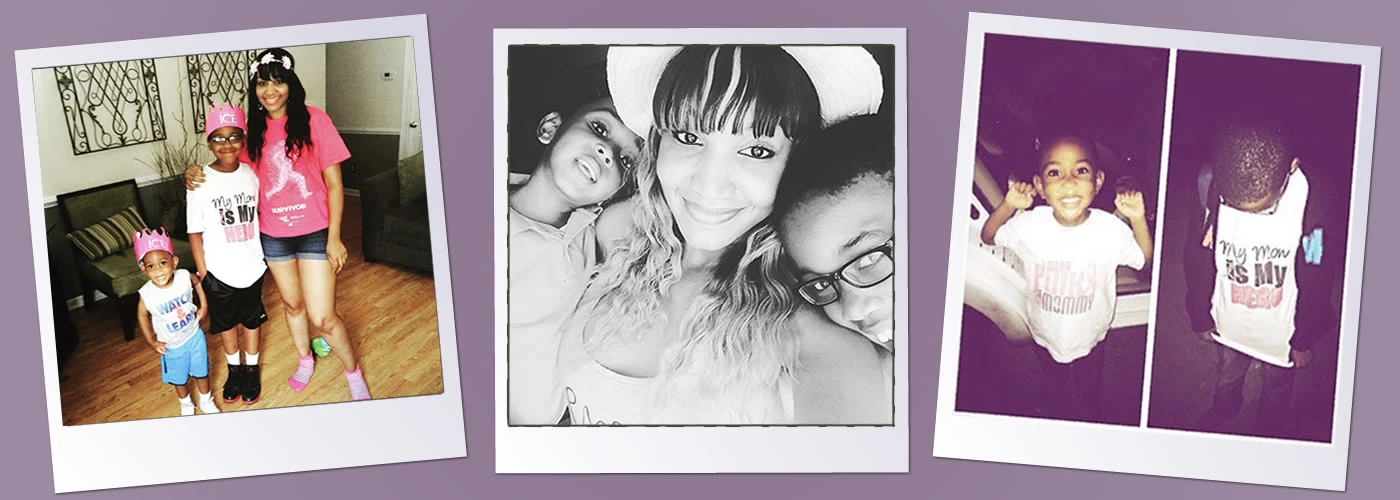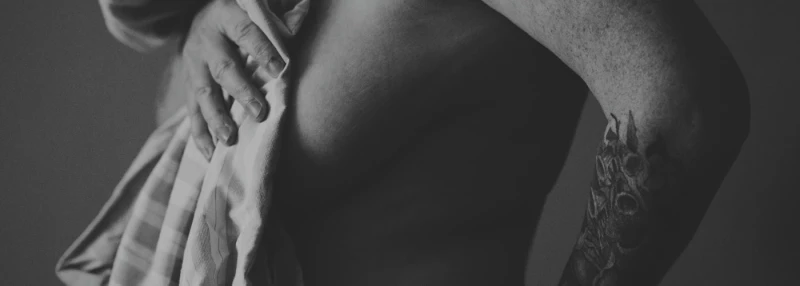Once the initial shock of my breast cancer diagnosis faded, my first thought was, How am I going to explain this to my children? I knew nothing about talking to kids about breast cancer.
My boys were 9 and 2 at the time of my diagnosis. Thinking about the battle ahead scared me, but the thought of my children seeing me sick scared me even more. In their eyes, I was supermom.
Learn More
How was I going to explain I might not have the energy to do all the things I was used to doing? How would I explain the port bulging from underneath my skin? How would I answer the question, “What happened to your hair?”
The drive home after receiving my diagnosis was the longest ride of my life. It’s the same route I take every day, but that day the highway seemed never-ending. Every red light caught me as I tried desperately to wipe away tears before other drivers noticed I was falling apart.
I Can’t Be Super Mom All the Time
My mind (unlike my car) was racing. When I finally got home, I took a minute in the driveway to gather myself. I tucked away my fears and anxiety about cancer, and wiped away tears. I traded it all in for my imaginary cape and went into supermom mode. I was kicking and screaming on the inside, but on the outside, I was still supermom.
I literally cried myself to sleep that night, dreading having to tell my sons that I had breast cancer. I rehearsed the conversation over and over in my head. I even contemplated ways I could hide my illness from them.
 Children are very intuitive, and they suspected something was going on before I ever said a word. It wasn’t long after my frequent visits to the doctor started that my 9-year-old son began asking questions. Initially, I told him I was just going in for checkups and some tests—he didn’t buy it.
Children are very intuitive, and they suspected something was going on before I ever said a word. It wasn’t long after my frequent visits to the doctor started that my 9-year-old son began asking questions. Initially, I told him I was just going in for checkups and some tests—he didn’t buy it.
The Talk
I had to sit my boys down and explain what was going on with mommy. It was one of the hardest conversations I’ve ever had in my life. I still remember the way my voice cracked when I told my son I needed to talk to him and the way his big brown eyes filled with tears before I could even get the words out. It's heartbreaking talking to kids about breast cancer.
“You know how I have been going to the doctor a lot…” I started, watching him shake his head as if he already knew what was coming next. When the words, “I have breast cancer,” came out of my mouth, he burst into tears and grabbed me.
My heart broke when he looked up at me and said, “Please mom. I don’t want you to have cancer.” We stood in the middle of his room, holding each other tight. I managed to maintain my composure as I assured him that I would be fine.
My boys were amazing and supportive through every step of my treatment. They not only kept me positive and encouraged, but inspired me to write a children’s book entitled, What’s Going on With Mommy? I knew I couldn’t be the only mother who had gone through having to tell their children about their diagnosis. I wanted to write a book that made it easier to have the conversation, a book that described cancer from the perspective of a child—a book that would have been great to have during the conversation I had to have with my children.
3 Tips for Talking to Kids About Breast Cancer
- Be careful with your words. As adults, we are shaken by a breast cancer diagnosis. It’s important to choose your words wisely when explaining the diagnosis to young children. You want to inform and educate without scaring them.
- Use resources. It always helps to have resources on hand to help you explain what’s going on. YSC has some awesome resources for children and parents. It’s also great to connect with support groups. Check with your local cancer center for any support groups offered for children whose parents are going through treatment. It always helps children when they know they aren’t alone (It’s equally important to connect with other moms as well).
- Lead by example. My breast cancer experience offered valuable lessons in strength, faith and the importance of support for not only to my children but myself as well. Allow your children to see you celebrating the wins and overcoming the obstacles along the way. My boys were amazing helpers during my treatment and recovery.
“Being a mother is learning about strengths you didn’t know you had and dealing with fears you didn’t know existed.” – Linda Wooten
 Monisha Parker found herself on the receiving end of a breast cancer diagnosis at the age of 28. Her diagnosis further ignited her passion for spreading awareness and offering support to others who have been affected by breast cancer. She authored a children’s book in 2018, which helps explains breast cancer to children. She currently resides in North Carolina with her husband and 3 children where she frequently shares her breast cancer journey at conferences and other community events. Follow her on her website at www.purposepaintedpink.com or on Instragram at @monishashante0503.
Monisha Parker found herself on the receiving end of a breast cancer diagnosis at the age of 28. Her diagnosis further ignited her passion for spreading awareness and offering support to others who have been affected by breast cancer. She authored a children’s book in 2018, which helps explains breast cancer to children. She currently resides in North Carolina with her husband and 3 children where she frequently shares her breast cancer journey at conferences and other community events. Follow her on her website at www.purposepaintedpink.com or on Instragram at @monishashante0503.




